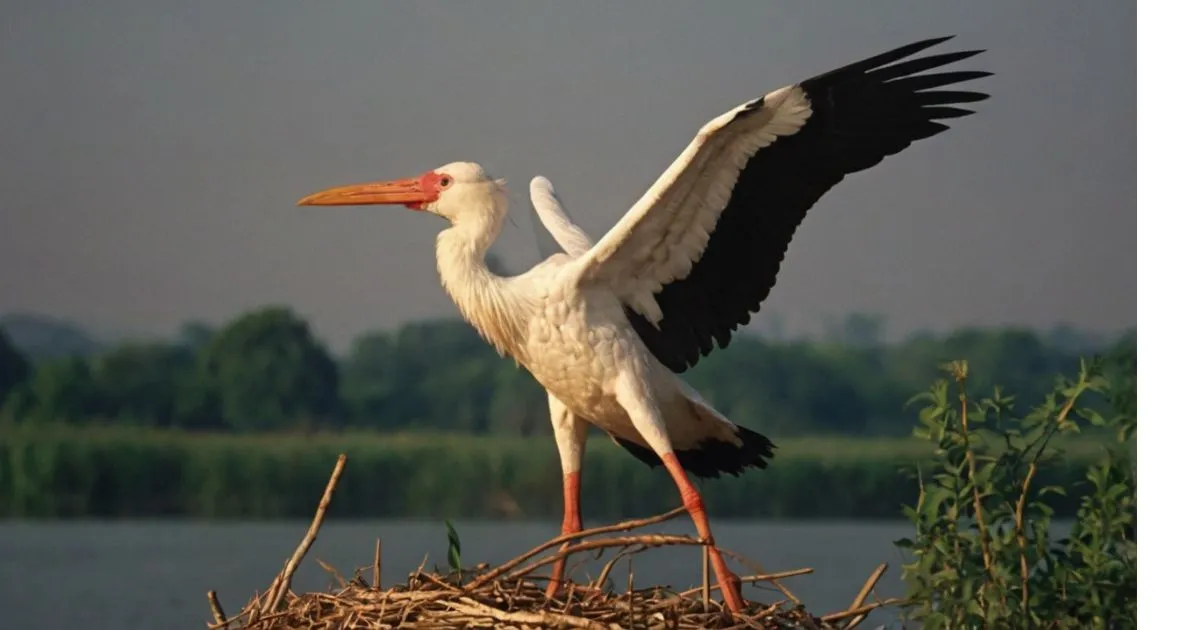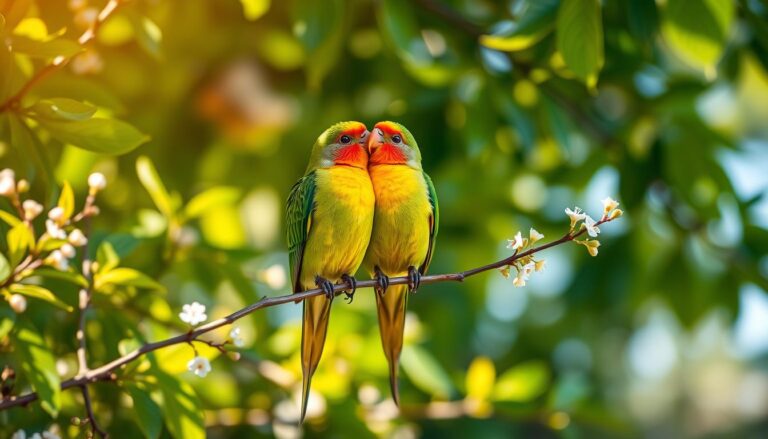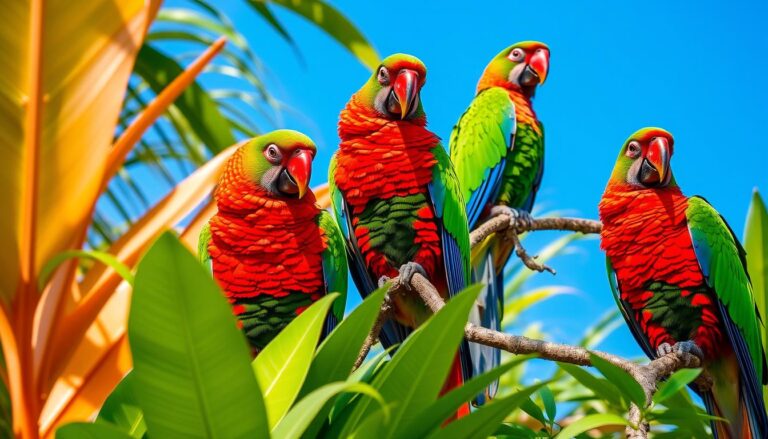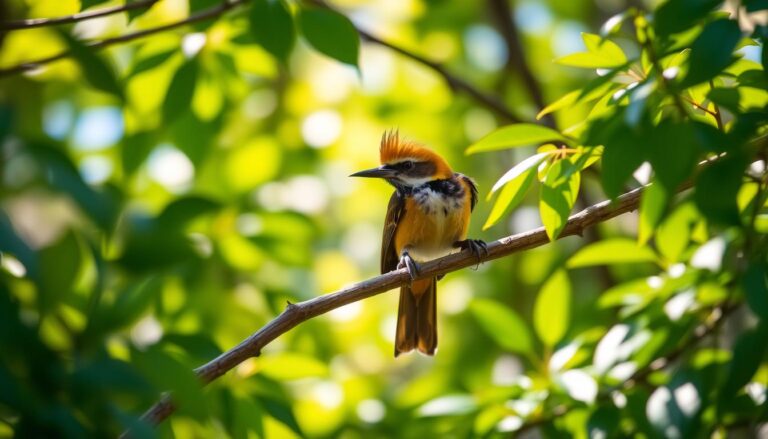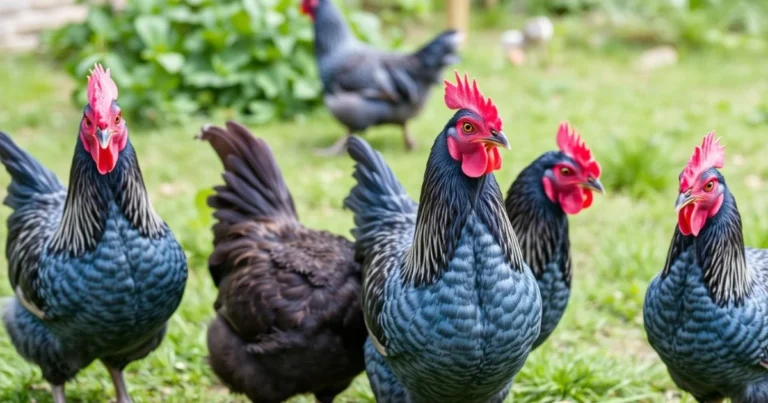What You Need to Know Before Adopting a Stork
Adopting a stork might remind you of magical stories where these birds bring joy and new starts. Imagine a stork gently landing in your backyard. It’s a beautiful idea, but it’s important to know what it really means.
In this article, we’ll cover everything you need to know about adopting a stork. We’ll talk about legal stuff, care needs, and more. This way, you can make a choice that’s good for you and your new friend.
Here’s a simple table format for an overview of the stork:
| Attribute | Details |
|---|---|
| Official Name | Ciconiidae |
| Common Name | Stork |
| Pet Height | Not typically kept as pets; can reach 3-5 feet in the wild |
| Pet Weight | Not typically kept as pets; weighs around 5-10 pounds |
| Lifespan | 20-30 years in the wild |
| Smartness Level | Moderate |
| Engagement in Play | Low (wild animals) |
| Human-Friendly | Generally shy, but non-aggressive |
| Animal-Friendly | Tends to avoid other animals |
| Favorite Food | Fish, frogs, insects |
Table of Contents
Understanding Storks: Nature’s Majestic Creatures
The Different Species of Storks
Storks have many species, each with its own look and needs. Here’s a quick look at some common stork types you might find:
- White Stork: It has white feathers and long legs. The White Stork is linked to stories about childbirth.
- Black Stork: This stork has shiny black feathers. It’s less seen than the White Stork.
- Marabou Stork: It’s big and has a bald head. The Marabou is a scavenger found in cities.
Knowing the species helps you pick the right stork for your home and life.

Natural Habitat and Behavior
Storks love wetlands, marshes, and places near water. They migrate long distances to find good homes. Knowing how they act naturally helps you make a better home for them.
- Social Structure: Storks like to be in groups. Think if you can give them a friend if you get one.
- Feeding Habits: In the wild, they eat fish, insects, and small mammals. It’s important to feed them the same at home for their health.
Legal Considerations for Stork Adoption
Understanding Local Laws and Regulations
Before getting a stork, learn about local laws. Some places have strict rules about owning exotic birds like storks. Here’s what you need to know:
- Permits: You might need special permits to have a stork. Check with your local wildlife agency.
- Prohibited Species: Some storks are protected by law. Make sure you’re not breaking the law to avoid trouble.
Ethical Considerations
Adopting from a reputable place is key. Look for wildlife rescues or sanctuaries that focus on helping birds. Here’s why it’s important:
- Prevent Illegal Trade: Adopting ethically helps stop illegal wildlife trade. This is bad for stork populations.
- Support Conservation Efforts: Your adoption helps protect these birds and their homes.
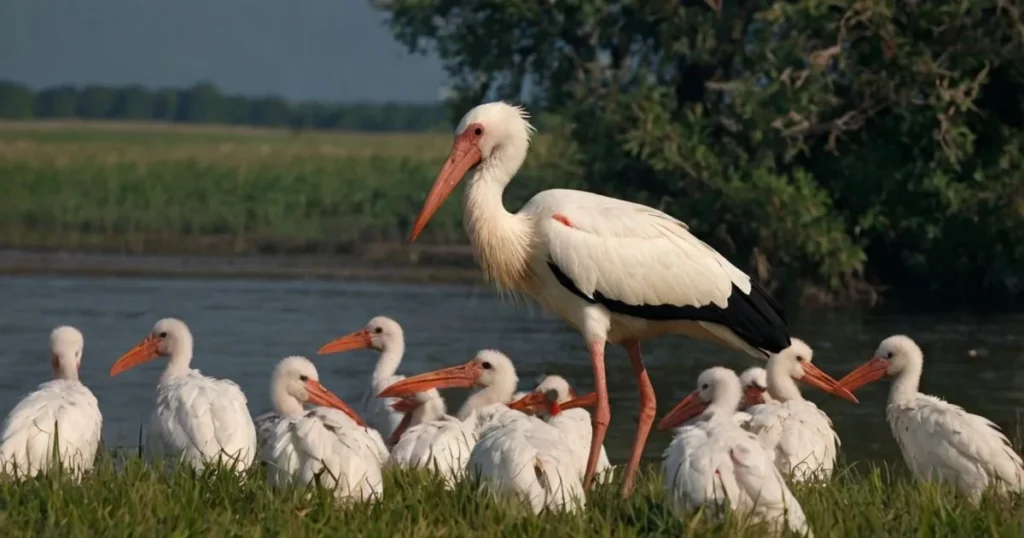
Preparing Your Home for a Stork
Space Requirements
Creating a good space for your stork is crucial. They need room to move and be happy. Here are important things to consider:
- Outdoor Enclosures: You need a safe outdoor area for your stork. It should have perches, shade, and water.
- Indoor Habitats: If your stork will be inside, make a safe room. It should be big and have good air.
- Climate and Temperature Needs
- Storks like certain temperatures and may need help with your climate.
- Temperature Range: Keep it mild and stable with low humidity.
- Seasonal Adjustments: Use heaters in winter and coolers in summer if needed.
- Interaction and Social Needs : Some storks like people or other birds. But it depends on them. Give them toys and activities, but don’t force them if they don’t want to.
Feeding Your Stork
Knowing what to feed your stork is key for their health. Storks eat a mix of meat, fruits, and veggies. Here’s what they like:
- High-Quality Protein Sources: Fish, insects, and small rodents are great.
- Fruits and Vegetables: Fruits and veggies add variety. Berries, leafy greens, and carrots are good choices.
Feeding Schedule:
- Feed them regularly to keep them healthy. Here’s a daily plan:
- Morning: Fresh fruits and veggies
- Midday: Protein like fish or insects
- Evening: A mix of both

Veterinary Care and Health Concerns
Storks can face health problems, mainly in captivity. So, regular vet visits are key. Look for a vet who knows about exotic birds to help with check-ups and any health issues.
- Common Issues: Parasites, infections, and wing injuries.
- Exotic Bird Specialist: Look for a vet who knows about birds.
Time and Financial Commitment
Looking after a stork takes time and money. Here’s an approximate cost guide:
| Expense | Estimated Cost (USD) | Frequency |
|---|---|---|
| Enclosure setup | $500 – $2000 | One-time |
| Veterinary care | $100 – $300 | Annual |
| Feeding costs | $30 – $100 | Monthly |
| Licenses and permits | Varies | One-time/Annual |
| Enrichment and toys | $20 – $50 | As needed |
Think about these costs before deciding to make sure you’re ready.
The Commitment of Stork Ownership
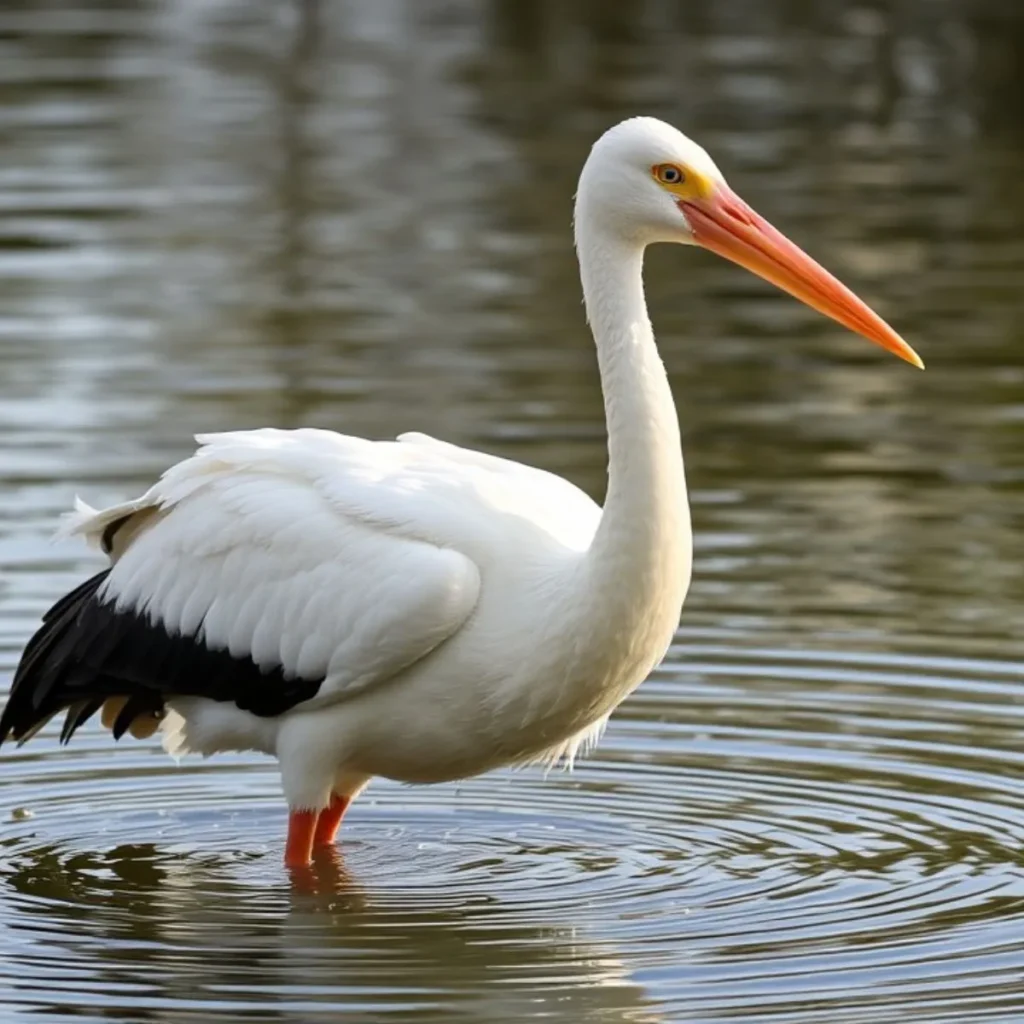
Daily Care and Interaction
Stork care is more than just feeding and housing. They need daily attention and interaction. Here’s what to do every day:
- Feeding and Cleaning: Clean their feeding spots daily and change their food to keep things clean.
- Social Interaction: Spend time with your stork to build trust and a strong bond. Playing gently or letting them follow you can help them feel close to you.
Long-Term Commitment
Storks can live up to 20 years in captivity. So, think about the long-term when deciding to own one:
- Time Commitment: Be ready for daily care, feeding, and interaction.
- Financial Implications: Owning a stork can cost a lot. This gives you a general sense of the expenses:
- Initial Setup Costs: Enclosure, food, vet visits
- Ongoing Monthly Expenses: Food, healthcare, and supplies
Daily Care Routine for a Stork
Having a daily routine helps your stork get the best care. Here’s a sample routine:
- Morning (7 AM):
- Fresh water and food
- Clean the feeding area
- Midday (12 PM):
- Check for health and behavior
- Give them toys and interaction
- Evening (6 PM):
- Evening meal
- Time to bond with your stork
FAQs About Stork Adoption
Common Questions
Q1: Are storks suitable pets for families?
Yes, storks can be great companions. But, make sure they fit well with your family. They love to be around people.
Q2: How much space do storks need?
Storks need lots of space to be happy. They need a big outdoor area and a safe indoor spot.
Q3: What are the dietary needs of a stork?
Storks eat a mix of protein, fruits, and veggies. Include high-quality fish, insects, and fresh produce in their diet.
Q4: Can I train my stork?
Yes, you can train a stork. Use positive reinforcement to teach them simple commands. This encourages good behavior.
Conclusion
Adopting a stork is a great chance to care for a beautiful creature. It can make your life richer. You need to understand their needs and prepare your home well.
Storks are more than pets; they are a big responsibility. They need love, attention, and dedication for life. If you’re ready, make sure you do it right and ethically.

